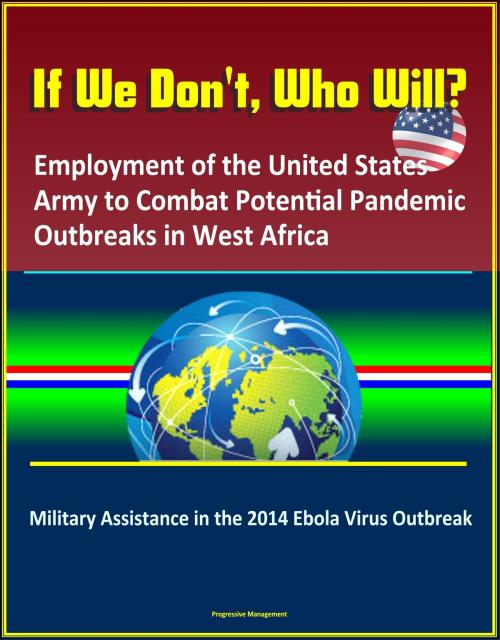If We Don't, Who Will? Employment of the United States Army to Combat Potential Pandemic Outbreaks in West Africa: Military Assistance in the 2014 Ebola Virus Outbreak
Nonfiction, Health & Well Being, Medical, Reference, Public Health, History, Military, United States| Author: | Progressive Management | ISBN: | 9781370174553 |
| Publisher: | Progressive Management | Publication: | January 23, 2017 |
| Imprint: | Smashwords Edition | Language: | English |
| Author: | Progressive Management |
| ISBN: | 9781370174553 |
| Publisher: | Progressive Management |
| Publication: | January 23, 2017 |
| Imprint: | Smashwords Edition |
| Language: | English |
This excellent report has been professionally converted for accurate flowing-text e-book format reproduction. A glance at a newspaper or news program between May through June of 2014 tells the story. The Ebola virus developed into the foremost major crisis in West Africa, more specifically Liberia. The Liberian government became increasingly unable to manage the situation and the pandemic outbreak threatened to de-stabilize civil society. But what does this have to do with the United States? Why should Americans worry about a virus affecting people 4,600 miles away? Beyond providing medical aid and money, why would the U.S. deploy the Army into this crisis area? What would such a military operation look like? These questions will be explored in order to support or refute use of the Army in response to potential pandemic outbreaks in West Africa.
CHAPTER 1 - INTRODUCTION * CHAPTER 2 - LITERATURE REVIEW * CHAPTER 3 - RESEARCH METHODOLOGY * CHAPTER 4 - DATA PRESENTATION AND ANALYSIS * CHAPTER 5 - CONCLUSIONS AND RECOMMENDATIONS
Is there any other agency within the U.S. government that could respond instead of the Army? Two groups stand out as the most likely- the United States Agency for International Development (USAID) and the Civilian Response Corps (CRC). Both have mission statements that infer the capability to respond internationally in the event of a pandemic outbreak. According to USAID, the CRC's mission statement is to, under unified operating procedures, plan, coordinate, and conduct stabilization, reconstruction and conflict transformation operations abroad. USAID's mission is to partner with civil authorities to end extreme poverty and to promote resilient, democratic societies while advancing our security and prosperity (USAID 2014). Beyond this, the capacity of either agency to effectively reach the desired end state must be considered when determining if the U.S. Army is the only available resource able to respond.
This excellent report has been professionally converted for accurate flowing-text e-book format reproduction. A glance at a newspaper or news program between May through June of 2014 tells the story. The Ebola virus developed into the foremost major crisis in West Africa, more specifically Liberia. The Liberian government became increasingly unable to manage the situation and the pandemic outbreak threatened to de-stabilize civil society. But what does this have to do with the United States? Why should Americans worry about a virus affecting people 4,600 miles away? Beyond providing medical aid and money, why would the U.S. deploy the Army into this crisis area? What would such a military operation look like? These questions will be explored in order to support or refute use of the Army in response to potential pandemic outbreaks in West Africa.
CHAPTER 1 - INTRODUCTION * CHAPTER 2 - LITERATURE REVIEW * CHAPTER 3 - RESEARCH METHODOLOGY * CHAPTER 4 - DATA PRESENTATION AND ANALYSIS * CHAPTER 5 - CONCLUSIONS AND RECOMMENDATIONS
Is there any other agency within the U.S. government that could respond instead of the Army? Two groups stand out as the most likely- the United States Agency for International Development (USAID) and the Civilian Response Corps (CRC). Both have mission statements that infer the capability to respond internationally in the event of a pandemic outbreak. According to USAID, the CRC's mission statement is to, under unified operating procedures, plan, coordinate, and conduct stabilization, reconstruction and conflict transformation operations abroad. USAID's mission is to partner with civil authorities to end extreme poverty and to promote resilient, democratic societies while advancing our security and prosperity (USAID 2014). Beyond this, the capacity of either agency to effectively reach the desired end state must be considered when determining if the U.S. Army is the only available resource able to respond.















